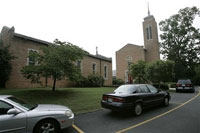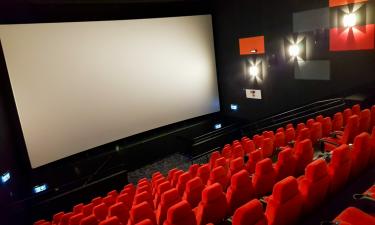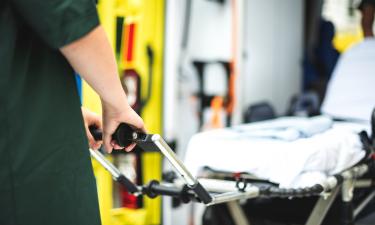Attacked church provides all church members, particularly children, private counseling
As they started their production of "Annie," a musical about an orphan's unwavering hope, the children of the Tennessee Valley Unitarian Universalist Church witnessed a scene that may have rattled theirs.

From the stage, they saw a gunman pull a sawed-off shotgun out of a guitar case and fire three deadly blasts that covered their friends and relatives in blood before congregants wrestled him to the ground.
Two dead and six wounded may only begin to tell the toll from the gunman's rampage on a congregation on Sunday, church leaders and experts say. Congregation president Ted Jones worries about the impact on the children as time progresses.
"You've got kids that were covered in blood. There were kids that watched their grandparents in a pool of blood and they were screaming and running down the hall in blood," Jones said. "They saw so much."
The church began to provide all church members, but particularly the children, private counseling the day after the attack. "We have done a lot of kid work and youth work," said Jones, a pain psychologist by profession.
Dr. Michael Kirby, a licensed child psychologist in Lakewood, Colorado, said children deal with trauma differently than adults do.
"Adults have larger coping skills. But with kids, they may or may not be good about talking about it. For younger kids, it won't be talking about what happened but drawing, using pictures," he said.
Teens, he said, might feel vulnerable and could write letters to the church or send sympathy cards to help them sort out their feelings.
"Kids must understand this is a lightning bolt and you help them respond with some kind of control," he said.
Sixteen-year-old Amira Parkey, one of the young performers, recalled hearing the "loud boom" of the first gunshot from the back of the sanctuary.
"I am just standing on stage looking at people's faces like what is going on?" she told AP Television News. "Then we heard the next gunshot go off and I see this man standing there with gray hair and this shotgun."
A mother's friend pulled her off the stage. Everyone was running for cover. Parkey couldn't break through the crowd to reach her family. She was bawling. A woman grabbed her, told her "to be strong, pull yourself together" and to help the younger children get out of the church. As they fled the building, she heard the third and final gunshot.
Outside, she found her sisters. She grabbed her youngest sister and hugged her. Then her grandmother and brother came out. They were covered in blood, but it was from other victims.
"I have never been so scared," she said. "It was so chaotic. It all happened so slow, but so fast at the same time."
The Rev. William Sinkford, president of the 1,000-congregation Unitarian Universalist Association in Boston, said the national organization "is providing all the support we can muster to minister to those touched most immediately by this horrific tragedy."
The suspected gunman, Jim D. Adkisson, 58, an out-of-work trucker whose ex-wife was once a member of the church, is being held on $1 million bond. He has been charged with one count of murder, and more charges are expected.
In a four-page letter police found in his small sport utility vehicle in the church parking lot, Adkisson said he attacked the church because "he hated the liberal movement," Police Chief Sterling Owen said. The church, which advocates social change, has worked for desegregation, racial harmony, fair wages, women's rights and gay rights. The congregation also has provided sanctuary for political refugees, fed the homeless and founded a chapter of the American Civil Liberties Union.
Church officials say the violence won't change their perspective, or their policy that everyone is welcome in their congregation.
"We have a little sign in the front window that says, 'Everyone Welcome,' and a rainbow flag," Jones said. "And that, or something like that, is going to stay."
Subscribe to Pravda.Ru Telegram channel, Facebook, RSS!





